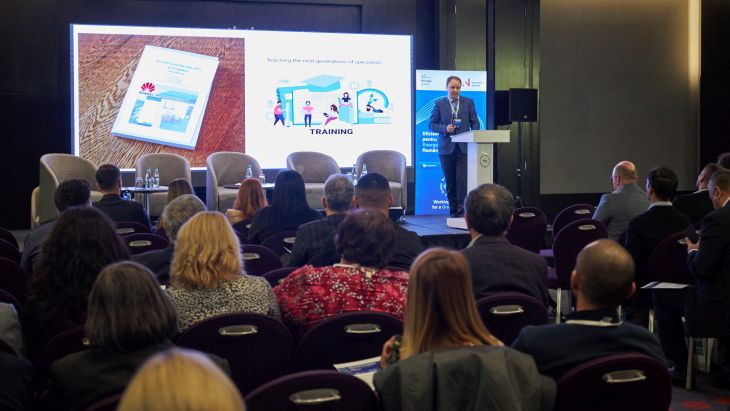In order to achieve the goals of energy transition, it is necessary to take concrete measures in the field of energy efficiency, and renewable energy sources can be integrated on a large scale, said Dr. Lucian Toma, Lecturer in the Faculty of Energy, Department of Electroenergetic Systems , National University of Science and Technology Politehnica Bucharest.
“The future must be designed to allow the large-scale integration of renewable energy sources. Energy efficiency must become a commercial decision or a technical choice that influences an entire chain of processes at all levels,” said Toma, at the conference “Energy Efficiency for Energy Transition” organised in București by Energynomics together with the Romanian Energy Efficiency Fund – FREE and the Directorate for Energy Efficiency within the Ministry of Energy.
He added that awareness is needed about the fact that “energy is not a free good,” but an extremely valuable resource.
Also, achieving the 2050 energy transition goals is not possible without significant investment, and technological development plays a crucial role in achieving these goals.
“We cannot reach the 2050 goals without investment, and technological development is very important to achieve the efficiency targets,” he added.
In this context, Dr. Lucian Toma referred to the collaboration of the National University of Science and Technology Politehnica Bucharest (UNSTPB) with Huawei. “We focused on the standards: risk assessment, installation of photovoltaics, standards for inverters, standards for interruption, and fire protection. They made the equipment available to us and we tested it according to the standards. […] The established result is that the tested equipment, in particular the inverters, meet very well both American and European safety standards,” said Dr. Lucian Toma.
DOWNLOAD THE PRESENTATION OF LUCIAN TOMA
The UNSTPB team has prepared a white paper that will be made public soon and aims to expand the collaboration with Huawei at the educational level. “We at the Faculty have invested in laboratory equipment, photovoltaics, storage systems, SCADA monitoring, hybrid systems, alternating voltage, direct voltage — all the technologies that evolve to allow the large-scale integration of renewables,” said Dr. Lucian Thomas. “Current technologies are ready to ensure energy independence for consumers, but energy is not cheap, and the necessary investments are enormous,” he concluded.
The conference in Buvharest was the last of a series of 5 scheduled by the Energynomics communication platform, the Romanian Fund for Energy Efficiency – FREE and the Directorate for Energy Efficiency within the Ministry of Energy. The project was financed by Norwegian Grants 2014-2021.
